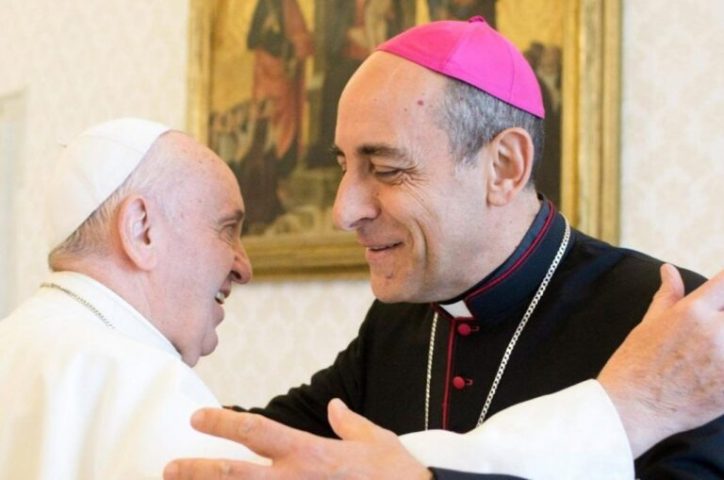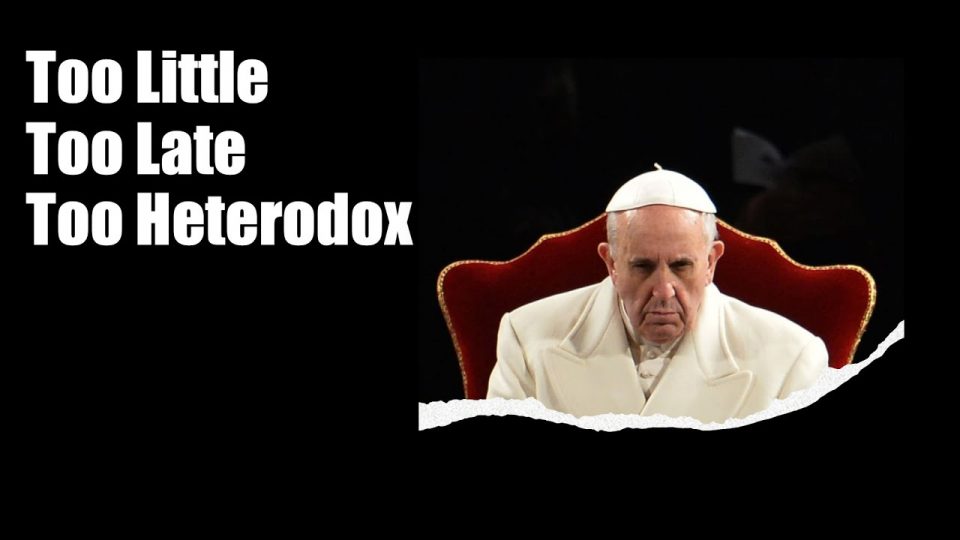By Robert B. Greving, Crisis Magazine, Jan. 19, 2024
Robert B. Greving teaches Latin and English grammar at a Maryland high school. Mr. Greving served five years in the U.S. Army J.A.G. Corps following his graduation from the Dickinson School of Law.
Fiducia Supplicans does, as Cardinal Fernández and Pope Francis hoped it would, provide clarity; it just isn’t the clarity they wanted.
 Well, the title alone is enough to make you read the article.
Well, the title alone is enough to make you read the article.
Now that the dust has surged on Fiducia Supplicans, we should look at the good news about it. It does, as Cardinal Fernández and Pope Francis hoped it would, provide clarity; it just isn’t the clarity they wanted.
It doesn’t clarify what the Vatican previously said on the matter. (You don’t need to clarify “No.”) But it has clarified what many cardinals, bishops, and priests believe about many things in the Church—and even about the Church herself.
You see, both sides of the fence agree about what it says. Whether you are Cardinal Müller or Fr. Martin, whether you’re the bishops in Germany or the bishops in Africa, you see the document as granting some form of Church approval of those living in “irregular situations,” and by “irregular situations” it means what had been called sinful. It has become the latest and most telling Rorschach test of the Catholic Faith. So, Fr. Joe, what will you do when Ted and Steve come to you, hand in hand, after Mass asking for your blessing? We shall now know where each priest stands on this and, by extension, many other issues. …
Continue reading >>>>>>>>>>>







